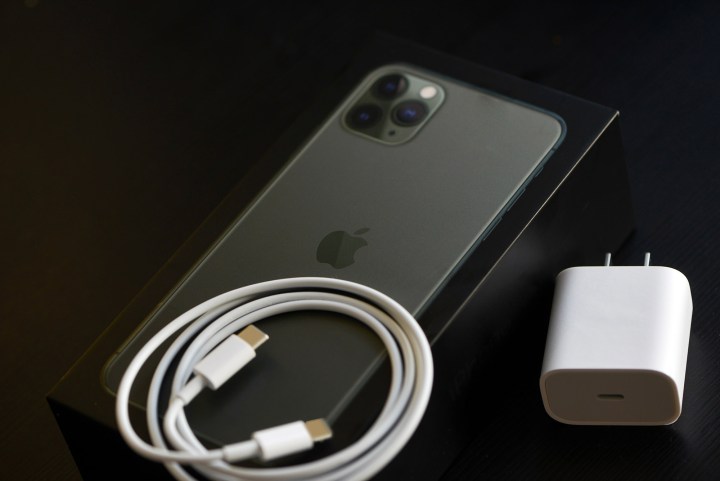Democratic senators want the U.S. to follow in the European Union’s footsteps and ditch Apple’s proprietary Lightning charger in favor of the universal USB-C charger. It’s a bold and powerful move on paper, but in reality, it’s a whole lot of fluff.
Sens. Edward Markey and Elizabeth Warren, both Massachusetts Democrats, and Bernie Sanders (D-Vermont) sent a letter to the Secretary of Commerce on Thursday, June 16, arguing that having smartphone and tablet consumers own both USB-C and Apple chargers places a financial burden on them — especially when they live in households where family members, roommates, or partners prefer Android devices to Apple’s (and vice versa). Furthermore, it exacerbates environmental damage because of the e-waste that piles up as a result. They cited the EU’s plans to require iPhones to have USB-C by 2024 and called on the Department of Commerce to develop a strategy to transition to that.

“The EU has wisely acted in the public interest by taking on powerful technology companies over this consumer and environmental issue,” the senators wrote. “The United States should do the same.”
The senators pointed out that of the 53.6 million metric tons of e-waste humans generated in 2019, 11,000 tons of that includes chargers that were thrown away as older phone and tablet models became obsolete, which is worsening the climate crisis. They believe that making the USB-C charger a mobile industry standard would be a benefit to consumers and help mitigate the effects of climate change.
Although the senators’ demands for USB-C to become a universal standard charger look and sound impressive, they come too late. Just days earlier, the EU voted to make USB-C a common charger in its regions — forcing companies like Apple to adopt USB-C charging in the very near future. While that law only applies to EU regions, it’s silly to think that Apple would create one iPhone model with USB-C for the EU, while offering ones with Lightning in other markets. If one part of the world demands USB-C from a company, it’ll almost certainly use USB-C everywhere.
Democratic members of the U.S. Senate urging the commerce department to enforce its own standard charging system is a noble effort to save our money and the planet. But whether they voiced their opinions about it or not doesn’t matter. Once the EU’s policy goes into effect in two years, Apple (and other brands) will be forced to use USB-C anyhow.
Editors' Recommendations
- I finally found a reason to love USB-C on the iPhone 15
- Apple totally wasted the iPhone 15’s biggest design change
- Apple’s new Lightning to USB-C adapter costs more than just buying a USB-C cable
- Something amazing happened to U.S. smartphones on July 11
- The U.S. government is now using AirTag trackers to spy on packages




